Product certifications aren’t just badges of honor – they’re powerful tools that drive consumer trust, market access, and brand value. As consumers grow increasingly conscious about food quality and safety, displaying the right certification logos on your packaging can help you gain their trust easily.
We’ve created this comprehensive resource to simplify your certification journey. Whether you’re launching a new product line or expanding into different markets, you’ll find direct links to official certification logos and their source websites. Each section provides clear information about certification requirements, criteria, and proper logo usage guidelines – everything you need to improve your product labeling and compliance.
Bookmark this guide as your go-to reference for food certification logos. Each logo is linked to its original source, making it easy to download high-fidelity versions for your product labels. Whether you’re a seasoned manufacturer or launching a new food brand, this resource is designed to save time, streamline compliance, and help you create labels that build confidence at a glance.
Table of Contents
Quick reference: Top food certifications at a glance!
| Category | Certifications | Description | Product that needs to have this logo |
| Governmental Food Certifications | USDA Organic USDA FSIS, FDA Food Facility Registration |
| Processed food products, Meat and poultry products, products claiming organic status, products for international markets |
| Independent Organizational Certifications | SQF |
| Processed food products, fresh produce, Agricultural products, products for retail chains |
| Dietary and Lifestyle Certifications | Certified Gluten-Free, Certified Vegan, Nut-Free, Whole30 Approved, MSG-Free |
| Allergen-sensitive products, specialty diet foods, health food products, lifestyle-specific products |
| Religious Certifications | OU Kosher, OK Kosher |
| Products for Jewish and Muslim consumers, products seeking religious market access, and international food products |
| Ethical and Fair Trade Certifications | Fair Trade USA, Fairtrade International, American Humane Certified |
| Coffee and tea, Cocoa products, Fresh produce, Meat and dairy products |
| Environmental and Sustainability Certifications | Rainforest Alliance, Marine Stewardship Council, Carbon Trust, Dolphin-Safe Tuna, Made Safe |
| Coffee and chocolate, Seafood products, Carbon-neutral products, Environmentally conscious brands |
| Product Composition Certifications | Non-GMO Project, Made with Natural Ingredients, BPA-Free |
| Natural food products, GMO-sensitive products, Products with packaging claims, Clean label products |
Explaining food certifications: Criteria, logos, and what they mean for your brand?
Before launching your food product, find out which label you should have for each of these categories.
Dietary & lifestyle certifications
These certifications validate specific claims about food ingredients and manufacturing processes, ensuring that products meet certain dietary requirements or are free from allergens. They’re essential for manufacturers targeting consumers with dietary restrictions or lifestyle choices.
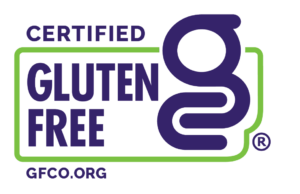 Certified gluten-free: Verifies products contain gluten levels below established safety thresholds. It ensures manufacturing processes prevent cross-contamination and confirms ongoing compliance through regular testing protocols.
Certified gluten-free: Verifies products contain gluten levels below established safety thresholds. It ensures manufacturing processes prevent cross-contamination and confirms ongoing compliance through regular testing protocols.
Criteria:
- Products must contain less than 10ppm of gluten
- Dedicated production lines or thorough cleaning validation
- Regular ingredient testing and verification
- Comprehensive allergen control program
Where to get it?: Gluten-Free Certification Organization (GFCO)
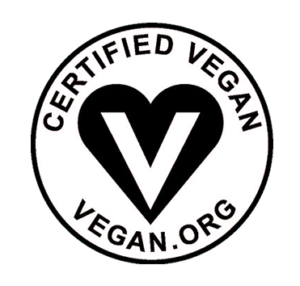 Certified vegan: This certification confirms products contain no animal-derived ingredients and are manufactured without animal testing. It validates that all aspects of production align with vegan standards and principles.
Certified vegan: This certification confirms products contain no animal-derived ingredients and are manufactured without animal testing. It validates that all aspects of production align with vegan standards and principles.
Criteria:
- Zero animal-derived ingredients or by-products
- No cross-contamination with animal products
- No animal testing in development or production
- Verified GMO-free status for high-risk ingredients
Where to get it?: Vegan Action, V-Label, American Vegan Society, BeVeg Certified, PETA-Approved Vegan
 Dairy-free certification: A certification verifying products contain no dairy ingredients and are manufactured in facilities with strict controls to prevent dairy cross-contamination. Essential for consumers with dairy allergies or lactose intolerance.
Dairy-free certification: A certification verifying products contain no dairy ingredients and are manufactured in facilities with strict controls to prevent dairy cross-contamination. Essential for consumers with dairy allergies or lactose intolerance.
Criteria:
- Complete absence of dairy ingredients
- Dedicated production lines or validated cleaning processes
- Regular testing for dairy protein residues
- Staff training on allergen management
Where to get it?: ACS USA
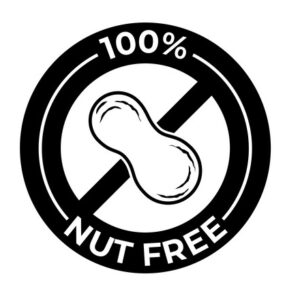 Nut-free certification: Certified products are manufactured without nuts and in facilities that maintain strict protocols to prevent nut contamination. Critical for consumers with severe nut allergies.
Nut-free certification: Certified products are manufactured without nuts and in facilities that maintain strict protocols to prevent nut contamination. Critical for consumers with severe nut allergies.
Criteria:
- Zero nut ingredients in facility
- Supplier verification program
- Regular testing protocols
- Comprehensive allergen control plan
Where to get it?: ACS, MenuTrinfo
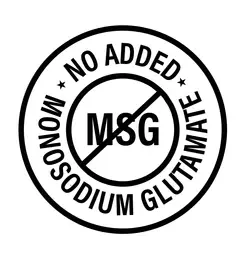 Msg-free certification: Verifies products contain no added monosodium glutamate and are produced in facilities that maintain MSG-free status. Important for consumers sensitive to MSG or seeking clean-label products.
Msg-free certification: Verifies products contain no added monosodium glutamate and are produced in facilities that maintain MSG-free status. Important for consumers sensitive to MSG or seeking clean-label products.
Criteria:
- No added MSG in formulations
- Natural glutamate disclosure if present
- Supplier ingredient verification
- Regular testing protocols
Where to get it?: There is no standardized or officially recognized certification logo specifically for “MSG-free” products in the United States. Unlike certifications for organic or gluten-free products, which have established certification bodies and logos, the designation of “MSG-free” is typically managed directly by manufacturers.
Governmental food certifications
These certifications represent mandatory regulatory requirements established by national authorities. They ensure compliance with food safety standards and regulations, making them essential for legal market access and consumer protection.
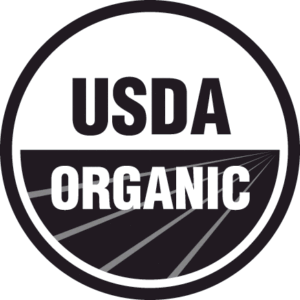 USDA Organic: Validates that food products meet strict federal guidelines for organic production, from soil quality to processing methods. Ensures proper oversight of farming practices and additive usage in food processing.
USDA Organic: Validates that food products meet strict federal guidelines for organic production, from soil quality to processing methods. Ensures proper oversight of farming practices and additive usage in food processing.
Criteria:
- 95% organic ingredients for full USDA organic seal
- No prohibited substances or methods GMO-free production
- Soil and water conservation practices
Where to get it?: USDA Agriculture Marketing Services
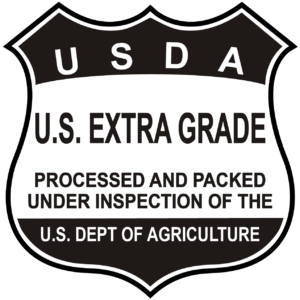 USDA FSIS: Mandatory inspection program ensuring the safety, wholesomeness, and correct labeling of meat, poultry, and egg products through continuous monitoring and inspection.
USDA FSIS: Mandatory inspection program ensuring the safety, wholesomeness, and correct labeling of meat, poultry, and egg products through continuous monitoring and inspection.
Criteria:
- HACCP system implementation
- Sanitation standard operating procedures
- Pathogen reduction programs
- Label claim verification Common
Where to get it?: USDA Agriculture Marketing Services
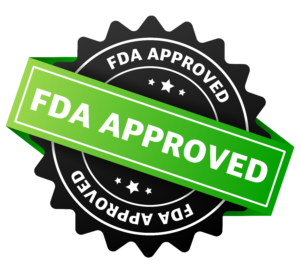 FDA Food Facility registration: Required registration for facilities manufacturing, processing, packing, or holding food for U.S. consumption under the Food Safety Modernization Act.
FDA Food Facility registration: Required registration for facilities manufacturing, processing, packing, or holding food for U.S. consumption under the Food Safety Modernization Act.
Criteria:
- Biennial registration renewal
- Preventive controls implementation
- Supply chain program Food safety plan development Common
Where to get it?: No specific logo. Registration number is used for FDA Establishment Identifier at FDA’s official site.
Religious certifications
These certifications ensure products meet specific religious dietary laws and requirements, crucial for manufacturers targeting markets where religious dietary observations influence purchasing decisions.
OU Kosher: World’s largest kosher certification agency, considered the global benchmark for kosher standards.
Criteria:
- Kosher ingredient sourcing
- Separate meat/dairy production
- Rabbinical supervision
- Equipment kosherization
Where to get it?: Orthodox Union (exclusive)
Environmental and sustainability certifications
These certifications verify responsible production practices and ecological stewardship. They address growing consumer demand for environmentally conscious products while ensuring sustainable business practices throughout the supply chain, focusing on conservation, sustainability, and environmental protection at every stage of food production.
 Rainforest alliance: Validates that products meet comprehensive standards for environmental protection, social responsibility, and economic viability in tropical agriculture. This certification ensures that farming practices maintain biodiversity while supporting local communities.
Rainforest alliance: Validates that products meet comprehensive standards for environmental protection, social responsibility, and economic viability in tropical agriculture. This certification ensures that farming practices maintain biodiversity while supporting local communities.
Criteria:
- Forest conservation practices including buffer zone maintenance
- Wildlife protection measures with biodiversity monitoring
- Fair labor conditions and community development programs
- Sustainable farming methods with soil health management
- Water conservation and watershed protection
- Climate-smart agriculture practices
Where to get it?: Rainforest Alliance Org
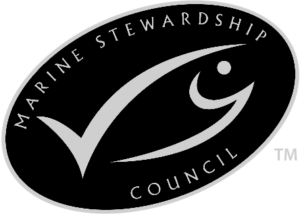 Marine stewardship council: Certifies sustainable fishing practices and seafood traceability from ocean to plate. This certification ensures fish populations remain healthy while minimizing environmental impact on marine ecosystems.
Marine stewardship council: Certifies sustainable fishing practices and seafood traceability from ocean to plate. This certification ensures fish populations remain healthy while minimizing environmental impact on marine ecosystems.
Criteria:
- Sustainable fish stock management with regular assessments
- Minimizing environmental impact through regulated fishing methods
- Effective fishery management with proper documentation
- Chain of custody verification throughout supply chain
- Regular audits of fishing practices and catch methods
- Compliance with international fishing regulations
Where to get it?: Marine Stewardship Council
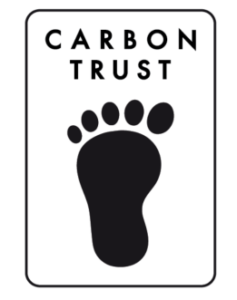 Carbon trust: Validates products’ carbon footprint and environmental impact claims through scientific assessment. This certification helps manufacturers demonstrate their commitment to reducing greenhouse gas emissions.
Carbon trust: Validates products’ carbon footprint and environmental impact claims through scientific assessment. This certification helps manufacturers demonstrate their commitment to reducing greenhouse gas emissions.
Criteria:
- Carbon footprint measurement across entire supply chain
- Emission reduction targets with annual milestones
- Environmental management systems implementation
- Annual performance review and documentation
- Energy efficiency improvements
- Scope 1, 2, and 3 emissions tracking
Where to get it?: Carbon Trust
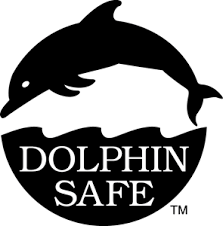 Dolphin-safe tuna: Verifies that tuna products are caught using methods that protect dolphins and other marine mammals. This certification ensures responsible fishing practices that maintain marine ecosystem balance while providing sustainable seafood sources.
Dolphin-safe tuna: Verifies that tuna products are caught using methods that protect dolphins and other marine mammals. This certification ensures responsible fishing practices that maintain marine ecosystem balance while providing sustainable seafood sources.
Criteria:
- No intentional chasing, encirclement, or netting of dolphins
- No accidental dolphin mortality or serious injury
- Independent observer verification on all fishing vessels
- Comprehensive tracking and monitoring systems
- Regular audits of fishing methods and equipment
- Strict compliance with international conservation laws
Where to get it?: NOAA Fisheries
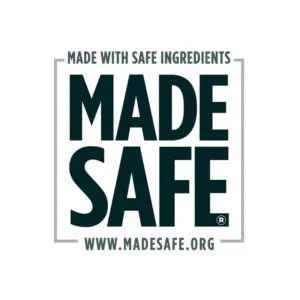 Made safe: Comprehensive certification for products made without harmful chemicals or ingredients. This certification goes beyond basic safety requirements to ensure products are safe for human health and ecosystem balance.
Made safe: Comprehensive certification for products made without harmful chemicals or ingredients. This certification goes beyond basic safety requirements to ensure products are safe for human health and ecosystem balance.
Criteria:
- No known toxic chemicals in final product or processing
- All ingredients screened for bioaccumulation concerns
- Ecosystem impact assessment for each ingredient
- Complete supply chain verification and documentation
- Regular testing for prohibited substances
- Packaging material safety verification
Where to get it?: Made Safe Organization
Independent organizational certifications
These third-party certifications validate food safety and quality management systems through rigorous verification processes. While voluntary, they often determine access to major retailers and international markets, making them essential for commercial success and brand credibility.
 SQF certification: Safe Quality Food certification provides comprehensive validation of food safety and quality management systems. This globally recognized program ensures consistent, high-quality production standards across all food categories.
SQF certification: Safe Quality Food certification provides comprehensive validation of food safety and quality management systems. This globally recognized program ensures consistent, high-quality production standards across all food categories.
Criteria:
- HACCP plan implementation with validation studies
- Comprehensive quality management system documentation
- Good manufacturing practices verification
- Risk assessment protocols for all processes
- Employee training and competency programs
- Environmental monitoring programs
- Supply chain verification protocols
Where to get it?: SQFI Institute
Religious certifications
These certifications ensure products meet specific religious dietary laws and requirements. They’re crucial for manufacturers targeting markets where religious dietary observations significantly influence purchasing decisions, requiring meticulous attention to ingredients, processing methods, and facility management.
Ou kosher: The world’s largest and most widely recognized kosher certification agency, setting the global benchmark for kosher standards. This certification validates compliance with Jewish dietary laws through comprehensive oversight of ingredients, equipment, and production processes, ensuring products meet the highest standards of kosher requirements.
Criteria:
- Complete verification of all ingredients’ kosher status
- Separate production lines for meat and dairy products
- Continuous rabbinical supervision during production
- Equipment kosherization through specific heating procedures
- Steam and hot water system segregation
- Detailed documentation of all ingredients and processes
- Strict cleaning and sanitation protocols between productions
- Special Passover certification requirements when applicable
- Regular facility inspections and compliance monitoring
- Supply chain verification for all raw materials
Where to get it?: Orthodox Union (exclusive certification authority)
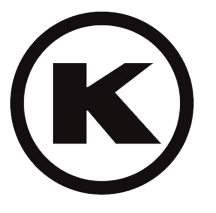 Ok kosher: One of the most respected global kosher certification agencies, known for combining traditional Jewish law with modern food technology understanding. This certification offers comprehensive kosher supervision with particular expertise in industrial food production.
Ok kosher: One of the most respected global kosher certification agencies, known for combining traditional Jewish law with modern food technology understanding. This certification offers comprehensive kosher supervision with particular expertise in industrial food production.
Criteria:
- Digital monitoring systems for production tracking
- Ingredient database verification and maintenance
- Regular production line inspections
- Advanced kosherization protocols for modern equipment
- Detailed batch tracking requirements
- Cross-contamination prevention procedures
- Staff training on kosher requirements
- Special production scheduling requirements
- Annual recertification process
- Emergency rabbinical supervision availability
Where to get it?: OK Kosher Certification
Ethical and fair trade certifications
These certifications validate fair compensation practices and ethical treatment throughout the supply chain. They ensure products meet rigorous standards for social responsibility, sustainable farming, and humane treatment of both workers and animals.
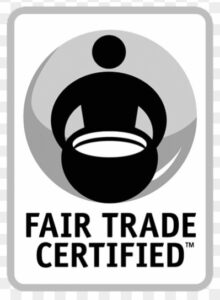 Fair trade usa: Premier third-party certifier of fair trade products in North America, ensuring equitable trading practices and sustainable livelihoods for farming communities. This certification validates comprehensive standards for social, environmental, and economic sustainability.
Fair trade usa: Premier third-party certifier of fair trade products in North America, ensuring equitable trading practices and sustainable livelihoods for farming communities. This certification validates comprehensive standards for social, environmental, and economic sustainability.
Criteria:
- Payment of Fair Trade minimum price to producers
- Community development premium investment
- Safe working conditions and fair labor practices
- Environmental sustainability requirements
- Transparent supply chain documentation
- Democratic organization of producer groups
- Gender equality promotion programs
- Child labor prohibition enforcement
Where to get it?: Fair Trade USA (exclusive)
 Fair Trade International: Global organization setting international fair trade standards and supporting small-scale farmers and workers. This certification ensures sustainable development and trade equity across international markets.
Fair Trade International: Global organization setting international fair trade standards and supporting small-scale farmers and workers. This certification ensures sustainable development and trade equity across international markets.
Criteria:
- Guaranteed minimum price protection
- Fairtrade Premium for community projects
- Democratic cooperative organization
- Environmental protection standards
- Long-term trading partnerships
- Pre-harvest financing options
- Women’s empowerment initiatives
- Climate change adaptation support
Where to get it?: Fair Trade International (exclusive)
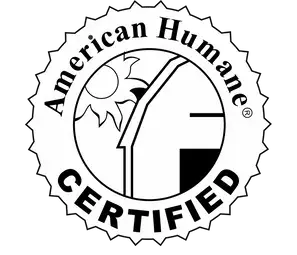 American humane certified: Comprehensive certification program ensuring the humane treatment of farm animals throughout their lifecycle. This certification validates animal welfare standards across all aspects of farming operations.
American humane certified: Comprehensive certification program ensuring the humane treatment of farm animals throughout their lifecycle. This certification validates animal welfare standards across all aspects of farming operations.
Criteria:
- Science-based animal welfare standards
- Regular third-party auditing
- Environmental enrichment requirements
- Proper nutrition and veterinary care
- Safe, hygienic housing conditions
- Natural behavior accommodation
- Transportation and handling guidelines
- Emergency response planning
Where to get it?: American Humane Association
Product composition certifications
These certifications verify specific claims about product ingredients and manufacturing processes. They provide assurance about product contents, processing methods, and packaging materials, crucial for manufacturers targeting health-conscious consumers.
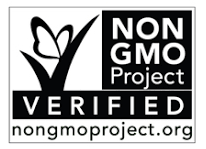 Non-GMO project: Most rigorous third-party verification for GMO avoidance in North America. This certification ensures products are produced according to comprehensive best practices for GMO avoidance.
Non-GMO project: Most rigorous third-party verification for GMO avoidance in North America. This certification ensures products are produced according to comprehensive best practices for GMO avoidance.
Criteria:
- Comprehensive ingredient testing protocols
- Supply chain traceability requirements
- Strict segregation practices
- Annual verification renewal
- Risk assessment procedures
- Action threshold compliance
- Continuous monitoring systems
- Quality assurance protocols
Where to get it?: Non GMO Project
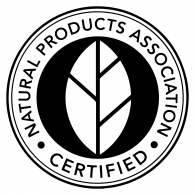 Made with natural ingredients: Validates claims about natural ingredient sourcing and processing methods. This certification ensures products meet strict standards for natural ingredients and minimal processing.
Made with natural ingredients: Validates claims about natural ingredient sourcing and processing methods. This certification ensures products meet strict standards for natural ingredients and minimal processing.
Criteria:
- Minimal processing methods verification
- No synthetic ingredient usage
- Natural preservative requirements
- Ingredient sourcing transparency
- Processing method documentation
- Sustainability considerations
- Packaging material standards
- Quality control processes
Where to get it?: Natural Products Association
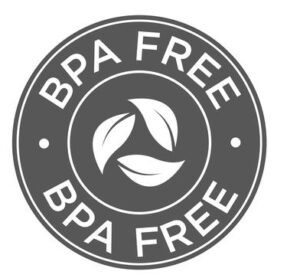 BPA-free: Certifies products and packaging are free from bisphenol A compounds. This certification ensures product safety through comprehensive material testing and manufacturing controls.
BPA-free: Certifies products and packaging are free from bisphenol A compounds. This certification ensures product safety through comprehensive material testing and manufacturing controls.
Criteria:
- Zero BPA in materials or components
- Alternative material validation
- Migration testing requirements
- Production control protocols
- Regular compliance testing
- Supply chain verification
- Documentation requirements
- Quality assurance systems
Where to get it?: Testing laboratories and independent certification bodies
Food certifications are more than just logos—they’re your product’s gateway to market success and consumer trust. With this detailed guide, you can learn the certification ecosystem with confidence, ensuring your products fulfill the necessary protocols and display the right logos.
Note: Remember to verify current guidelines directly with certification bodies, as standards may evolve over time.
![List of Food Certifications & Logos [2025] List of Food Certifications & Logos [2025]](https://govisually.com/wp-content/uploads/2024/12/List-of-Food-Certifications-Logos-2025-1-1-1024x576.png)



